Publications
Articles, publications, books, tools and multimedia features from the U.S. Institute of Peace provide the latest news, analysis, research findings, practitioner guides and reports, all related to the conflict zones and issues that are at the center of the Institute’s work to prevent and reduce violent conflict.
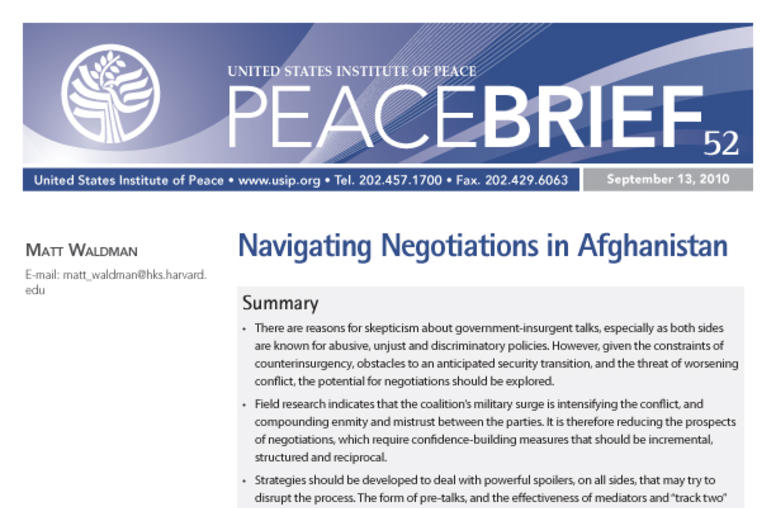
Navigating Negotiations in Afghanistan
This brief is based on six months of field research conducted by Matt Waldman in Afghanistan for a forthcoming USIP report on the drivers of the insurgency and the risks, feasibility and implications of negotiations.
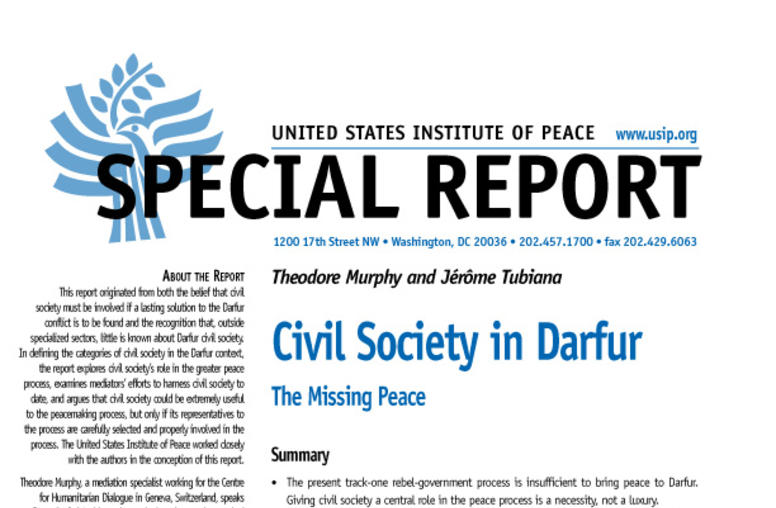
Civil Society in Darfur
This report explores civil society’s role in Darfur's greater peace process, examines mediators’ efforts to harness civil society to date, and argues that civil society could be extremely useful to the peacemaking process, but only if its representatives to the process are carefully selected and properly involved in the process.
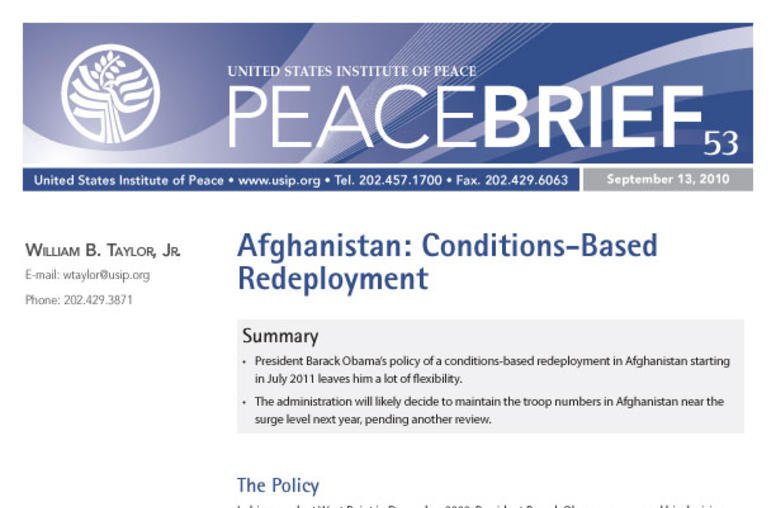
Afghanistan: Conditions-Based Redeployment
President Barack Obama’s policy of a conditions-based redeployment in Afghanistan starting in July 2011 leaves him a lot of flexibility. The administration will likely decide to maintain the troop numbers in Afghanistan near the surge level next year, pending another review.
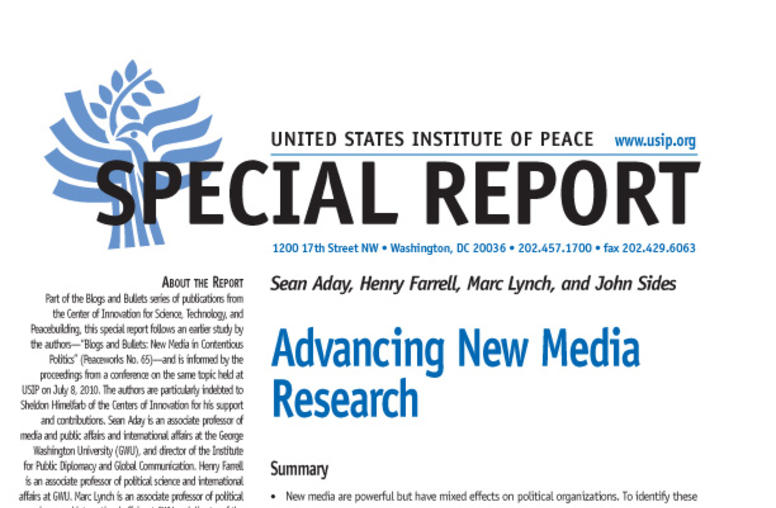
Advancing New Media Research
Part of the Blogs and Bullets series of publications from the Center of Innovation for Science, Technology, and Peacebuilding, this special report follows an earlier study by the authors—“Blogs and Bullets: New Media in Contentious Politics” (Peaceworks No. 65)—and is informed by the proceedings from a conference on the same topic held at USIP on July 8, 2010.
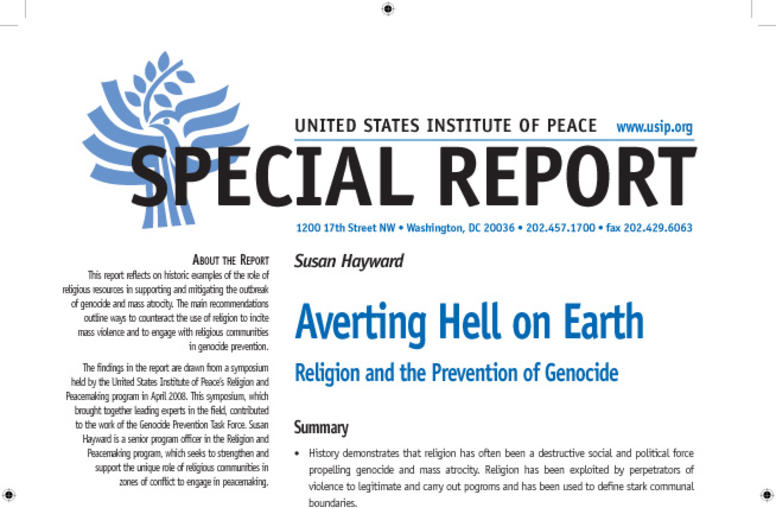
Averting Hell on Earth: Religion and the Prevention of Genocide
This report reflects on historic examples of the role of religious resources in supporting and mitigating the outbreak of genocide and mass atrocity. The main recommendations outline ways to counteract the use of religion to incite mass violence and to engage with religious communities in genocide prevention.
On the Issues: What if Kabul Bank Fails?
Afghanistan’s largest commercial bank, Kabul Bank, went into turmoil after its top two directors stepped down in early September 2010 amid allegations of systemic corruption. Kabul Bank shortly thereafter froze the assets of the former chairman and former chief executive officer, as well as those of several other shareholders and major borrowers. USIP’s Raymond Gilpin provides context and offers his perspective on this crisis.
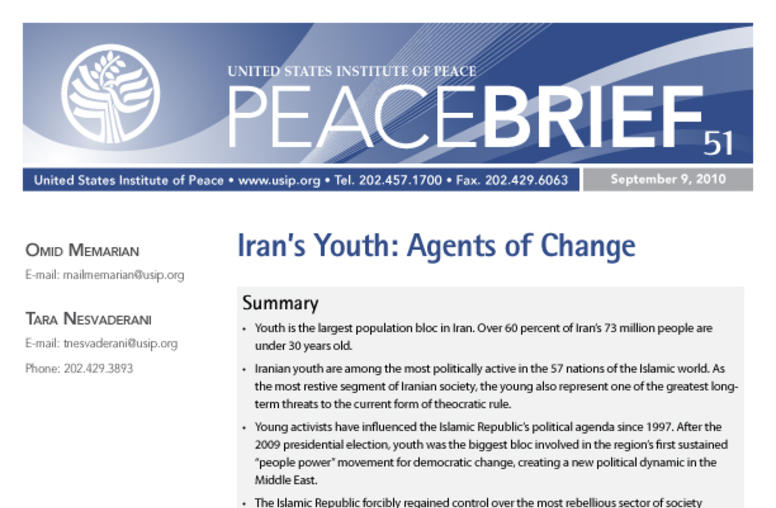
Iran’s Youth: Agents of Change
The impact of Iran’s youth on the political, economic and social agenda of the country over the next 25 years is important for U.S. policymakers to consider when facing complex decisions in balancing Iran’s nuclear program and its internal political turmoil.
Praise for Crescent and Dove
“Crescent and Dove brilliantly infuses sound social science with religious interpretations of Islamic sources. The fresh analyses and insights provided by Huda and these diverse contributors are concise and convincing, adding the cultural dimension needed to comprehend the contemporary Muslim world. The contributors demonstrate a skillful and contextual knowledge of Islamic sources and challenge several traditionally held viewpoints. This book is a must-read for strategists, professionals, ed...
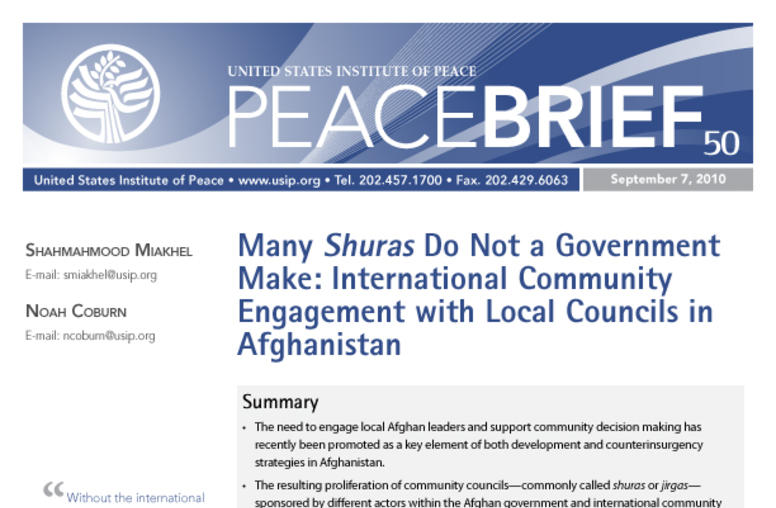
Many Shuras Do Not a Government Make: International Community Engagement with Local Councils in Afghanistan
The need to engage local Afghan leaders and support community decision making has recently been promoted as a key element of both development and counterinsurgency strategies in Afghanistan. This Peace Brief supports the attempts to create a coherent long-term goal of local governance based on legitimate local actors, most likely selected through elections.
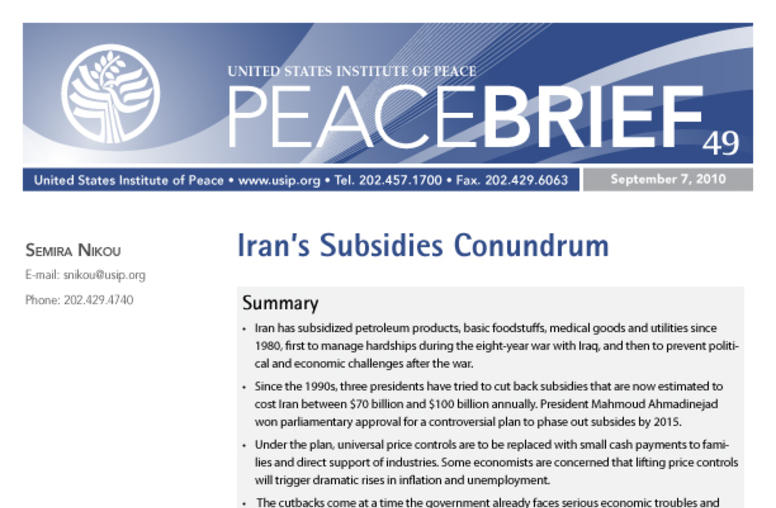
Iran's Subsidies Conundrum
This Peace Brief was written in advance of Iran’s subsidy reform. Currently scheduled for the end of September, the reform is one of the most debated and anticipated economic overhauls in the country. It has the potential to incur severe consequences in a country already burdened by sanctions and fraught with inflation and unemployment. At the same time, reform can potentially discourage waste, reduce inefficiencies in industries, and be a catalyst for economic liberalization.